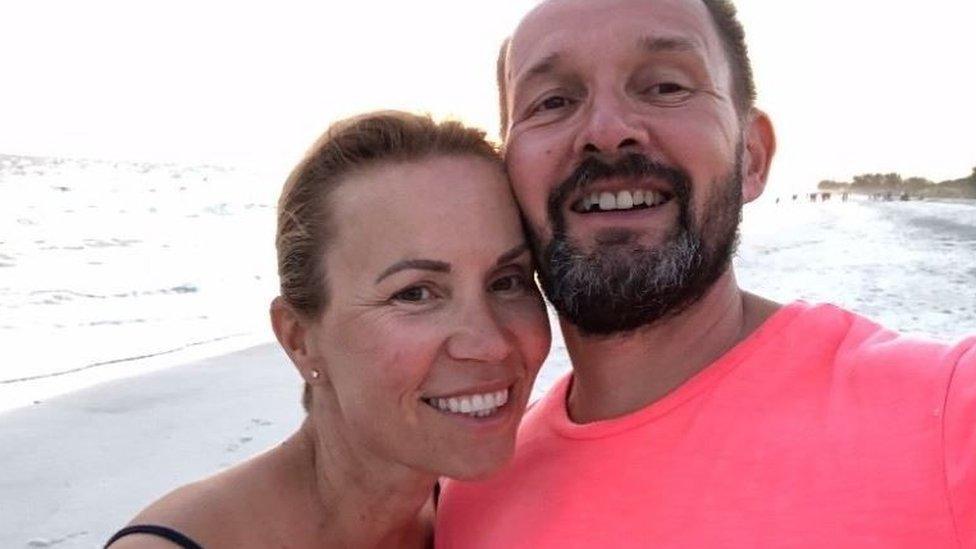BBC presenter Dianne Oxberry died from ovarian cancer
- Published

Ian Hindle (right) wants to raise awareness about ovarian cancer
BBC journalist Dianne Oxberry died from ovarian cancer, her husband has said.
The former Radio 1 presenter died aged 51 at the Christie Hospital in Manchester earlier this month.
Her husband Ian Hindle said he wanted to raise awareness about the disease and hoped to set up a charity in his wife's memory.
Mr Hindle said money raised would "help families and individuals... suffering from this aggressive disease".
He added: "The aim is also to raise awareness about ovarian cancer and its after-effects, particularly where families have suffered sudden loss which can often be the case with this appalling disease."

Radio 1 DJs, including Dianne Oxberry, gathered for the station's 25th birthday in 1992
Oxberry's death on 10 January prompted an outpouring of tributes and reaction, including BBC radio presenter Simon Mayo, who worked with her on the Radio 1 Breakfast Show in the 1980s.
"There was a spark in the studio when she was there and I think everyone is very devastated that she has gone," he said.
"She was very intelligent, she was very sharp and very charismatic and that huge warmth is what listeners and viewers will take away."

Dianne Oxberry took part in a 100-mile relay walk for BBC Children in Need in November
According to Cancer Research UK there are about 7,400 new ovarian cancer cases in the UK every year, with almost six in 10 diagnosed at a late stage.
NHS England says it is one of the most common types of cancers in women and although it mainly affects women over the age of 50 it can sometimes affect younger women.

Symptoms of ovarian cancer
Persistent bloating - not bloating that comes and goes
Feeling full quickly and/or loss of appetite
Pelvic or abdominal pain (tummy and below)
Urinary symptoms (needing to wee more urgently or more often than usual)
Changes in bowel habit (eg diarrhoea or constipation)
Extreme fatigue (feeling very tired)
Unexplained weight loss
Any bleeding after the menopause should always be investigated by a GP
Source: NHS

- Published11 January 2019
